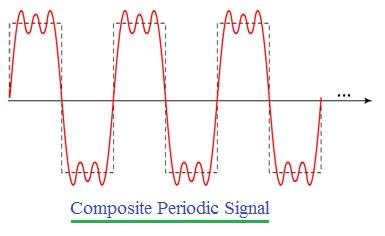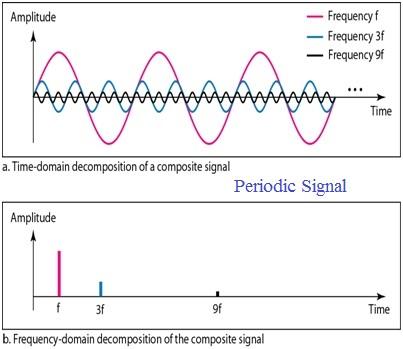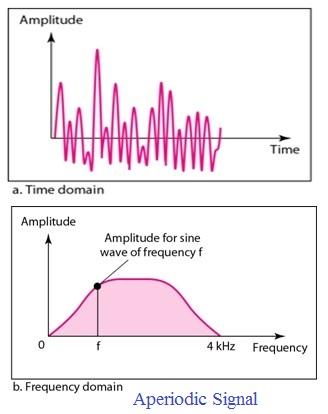Periodic vs. Aperiodic Signals: Definitions & Key Differences
Advertisement
Signals are essential in communication systems and signal processing. They can be classified as periodic or aperiodic based on their repeating patterns. A periodic signal repeats its pattern over a specific interval, while an aperiodic signal does not exhibit any repetitive pattern. Understanding the differences between these signal types is crucial for analyzing and designing systems in engineering, physics, and telecommunications.
In this guide, we will explore the definitions, examples, and distinctions between periodic and aperiodic signals. In the data communication domain, there are two major types of signals: periodic analog signals and non-periodic or aperiodic digital signals.
Periodic analog signals can be classified as simple or composite.
Periodic Signal Definition
A signal is considered to be a periodic signal when it is repeated over a cycle of time or a regular interval of time. This means a periodic signal repeats its pattern over a period.
The function can be periodic if it satisfies the following equation:
Example: The cosine signal is periodic with a periodicity value of .

A simple periodic analog signal such as a sine wave or cosine wave cannot be decomposed into simpler signals.
A composite periodic analog signal is composed of multiple sine waves. The figure below depicts a typical composite periodic signal.

The frequency is the rate of change with respect to time. Frequency and period are inverse of each other. Hence, the following can be implied:
and
The units such as seconds (s), milliseconds (ms), microseconds (µs), nanoseconds (ns), and picoseconds (ps) are used for the time period, while units such as Hz, KHz, MHz, GHz, and THz are used for frequency. The figure above depicts the time domain and frequency domain decomposition of the composite periodic signal. This is derived from the fact that a complete sine wave in the time domain can be represented by one single spike in the frequency domain.
Aperiodic Signal | Non-periodic Signal Definition
A signal is considered to be non-periodic or aperiodic when it does not repeat its pattern over a period (i.e., an interval of time).

The figure above depicts the time domain and frequency domain decomposition of the composite aperiodic signal.
Following are two classic examples of aperiodic signal types:
Example #1: A signal created by a microphone or telephone when one or two words are pronounced. In this application, the composite signal cannot be periodic in nature. Hence, it is referred to as an aperiodic signal.
Example #2: A signal propagated by an AM radio station or FM radio station.
Difference between Periodic and Aperiodic Signals
This table simplifies the distinctions between periodic and aperiodic signals, making it easier to understand their characteristics and practical applications.
| Aspect | Periodic Signal | Aperiodic Signal |
|---|---|---|
| Definition | A signal that repeats its pattern at regular intervals. | A signal that does not exhibit any repetitive pattern. |
| Mathematical Condition | Satisfies , where T is the period. | Does not satisfy ; no fixed period exists. |
| Representation | Fourier series (sum of sinusoidal components). | Requires Fourier transform for spectral representation. |
| Examples | Sine waves, square waves, triangular waves, clock pulses. | Music notes, speech signals, random noise. |
| Frequency | Contains discrete frequency components (harmonics). | Contains a continuous spectrum of frequencies. |
| Energy vs. Power | Typically power signals. | Often classified as energy signals. |
| Applications | Clocks, oscillators, systems requiring repetitive behavior. | Speech, seismic waves, data, natural and random signals. |
| Visual Representation | Regular repeating patterns in its waveform. | Irregular or non-repeating waveform. |
| Example Use Case | Clock signals in digital circuits, carrier signals in communication. | Transient signals like sound bursts or radar pulses. |
Conclusion
Periodic and aperiodic signals form the foundation of signal classification in communication and engineering. While periodic signals exhibit repetitive patterns, aperiodic signals are non-repetitive, making them suitable for different applications. Recognizing their characteristics and differences helps in selecting the appropriate signal type for various real-world scenarios, ranging from audio processing to data transmission.
Advertisement
 RF
RF





